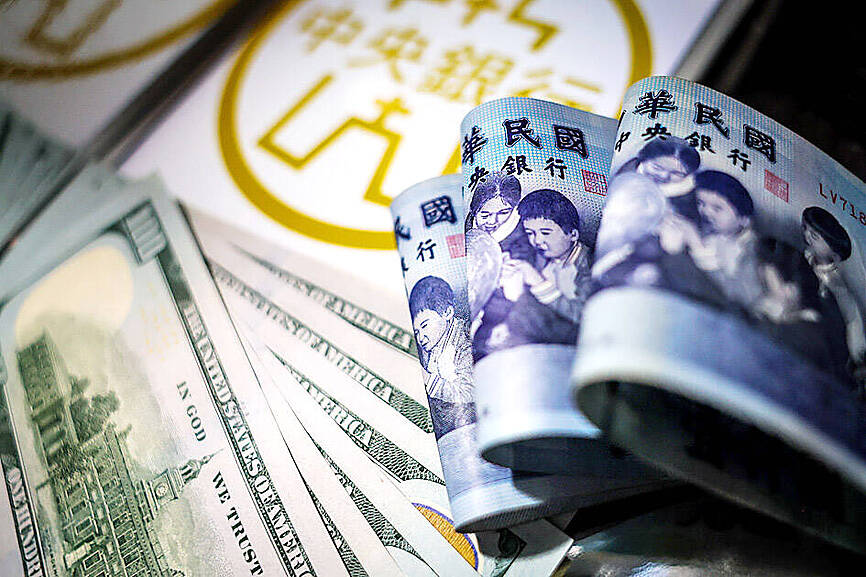The central bank on Friday rejected an allegation by The Economist that it has kept the New Taiwan dollar undervalued to bolster exports and created “hidden risks” for the economy, saying the currency’s value is determined by market supply and demand.
In a statement, the central bank said that an article in The Economist — “The hidden risks in Taiwan’s boom” — mistakenly used the Big Mac Index to assess the NT dollar and that the conclusion was distorted.
According to The Economist, the NT dollar is undervalued by 55 percent against the US dollar based on the Big Mac Index, which the magazine used as a measure to show how far a currency has departed from its underlying value.

Photo: CNA
The magazine said while an undervalued NT dollar boosted Taiwanese exporters’ global competitiveness, ordinary Taiwanese consumers have been deprived of the fruits of growth, with financial risks building up.
The weakness of the NT dollar is hurting many Taiwanese people’s purchasing power and inflating local home prices, The Economist said.
The central bank said the Big Mac Index was flawed, a fact The Economist recognized as early as 2003. In addition, The Economist had said in 2006 that the Big Mac Index has been misused to assess a currency’s value, the central bank said.
Therefore, the Big Mac Index was an inappropriate measurement to gauge whether a currency is overvalued or undervalued, it said.
Citing the iPhone Index, developed by Nomura Securities in 2016 to assess a currency’s value based on iPhone prices in the currency’s market, the central bank said the NT dollar was 17.1 percent overvalued against the US dollar, a significantly different conclusion than that of the Big Mac Index.
The central bank said a currency’s value would be influenced by many factors, and the NT dollar’s value has been decided by a supply-and-demand market mechanism, adding that in a free financial market, cross-border capital flows have become one of the most important factors to decide a currency’s value.
Supply and demand in the currency market is correlated with transactions of financial products, it said.
The combined value in fund flows of foreign and local capital last year was 19.3 times the value of commodity transactions, the central bank said.
It is not appropriate to use Purchasing Power Parity to gauge consumer spending power to value a currency, because it is calculated by using only a basket of commodities and services, it said.
Despite a widening trade surplus with the US so far this year, the central bank said it has consulted with the US Department of the Treasury on the foreign exchange rate and macroeconomics matters, and Washington has never requested the central bank to boost the NT dollar against the US dollar.
The central bank said it exercises market intervention from time to time to smooth volatility in the market.
It said it would continue to communicate with the US Treasury to keep its market intervention transparent.